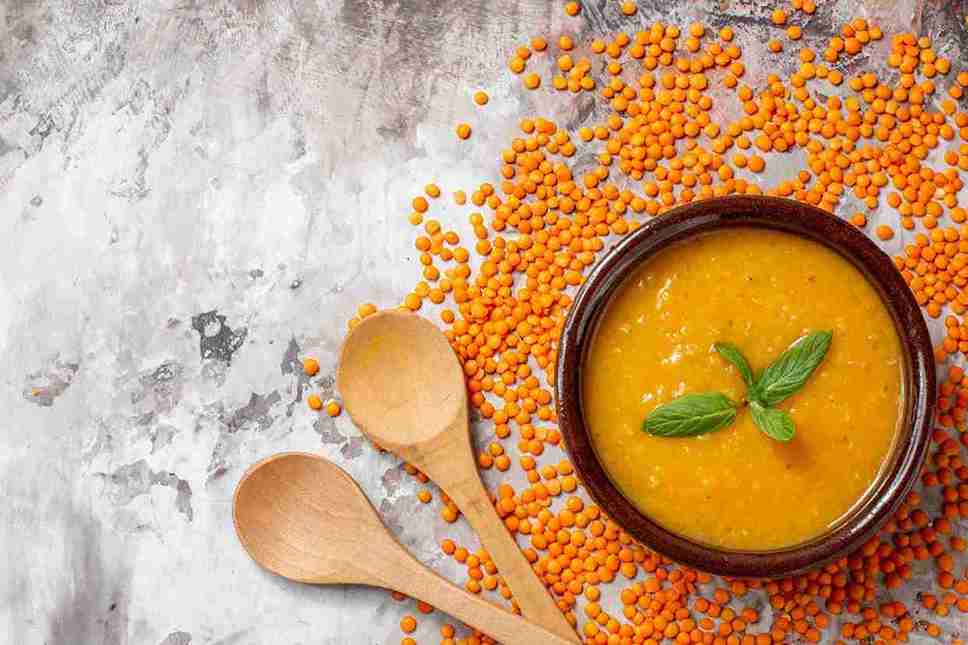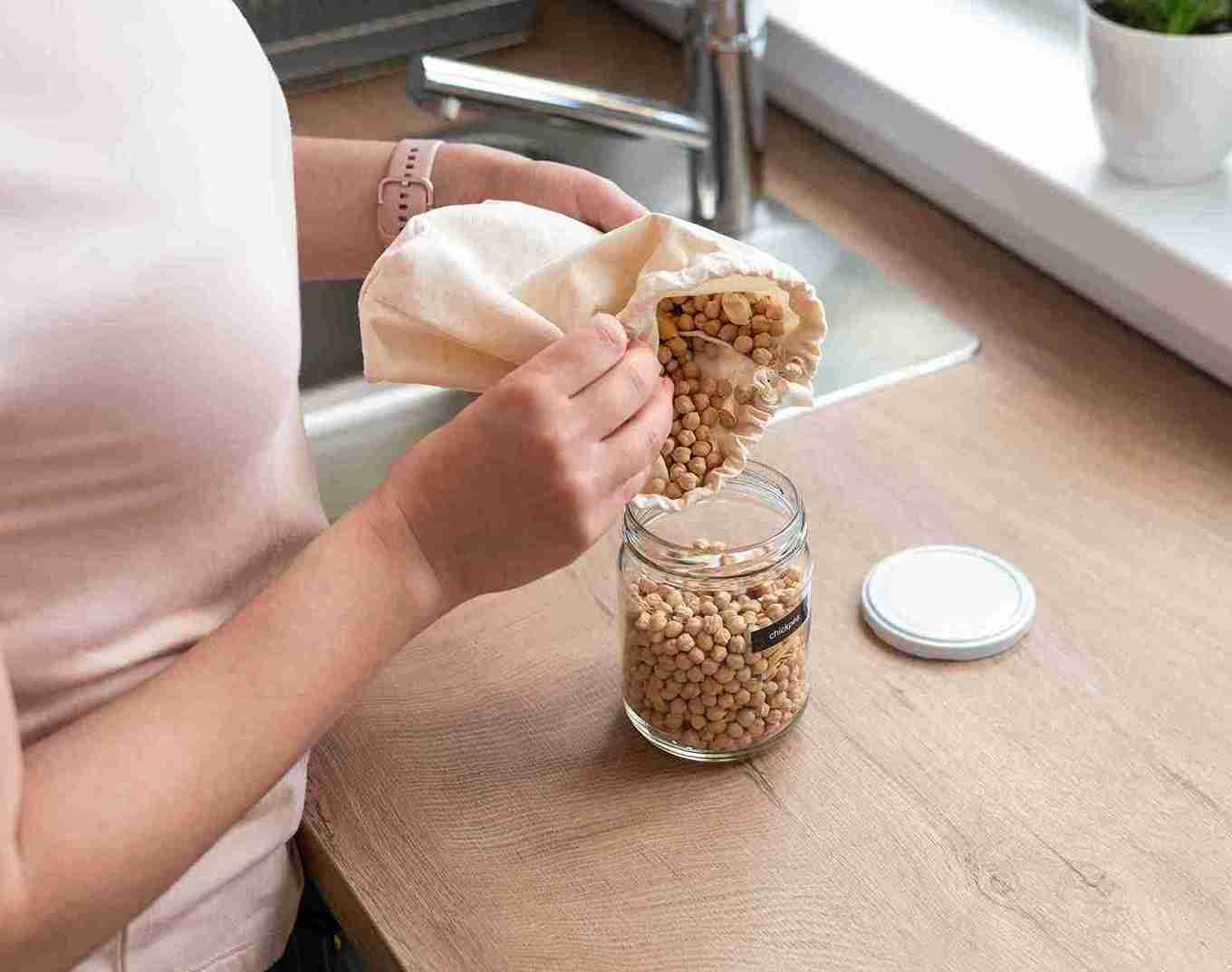
Pregnancy is a life-changing journey that requires great attention to the expectant mother’s nutrition and health. It is essential to nourish the mother with appropriate nutrients to support her well-being and healthy fetal development. Among the many food choices available, dals or lentils offer myriad benefits. Continue reading to learn about the benefits of lentils in pregnancy and also how to incorporate them into the diet.
Dals are very nutritious and rich in fibre, protein and minerals. 100 g of cooked dhal has:
They provide essential nutrients like
Dals have great nutritional value and contain folic acid, iron, Vitamin B9, protein and fibre in rich quantities. These are all essential for pregnant mothers and their growing babies. The taste, colour and size of dals differ according to origin and can be divided into large grains, small grains and lentil beans. They come in pods, are easy to cook and are affordable.

Folic acid is an essential nutrient that helps in good fetal development. Folate-rich foods for pregnancy prevent congenital disabilities like anencephaly or spina bifida in the baby. Dals are rich in folic acid, making them a great food during pregnancy. A cup of dhal fulfils about 90% of the daily recommended value of folate.
Dals contain high quantities of potassium, which helps control blood pressure during pregnancy. It also aids optimal blood circulation in the body without any issues.
Dals are rich in fibre, which helps to prevent intestinal tract disorders. It is ideal for pregnant women who have constipation, as it is a great source of fibre. A cup of dhal contains approximately 16 g of fibre, which helps alleviate digestive issues and promote regular bowel movements.
One of the common issues pregnant women have is anaemia. Including Iron-rich plant foods for pregnancy ensures they get the required amount of iron in their diet. Dals are one such plant food that provides an adequate amount of iron for a healthy pregnancy and delivery. A cup of lentils provides 6.6 mg of iron, helping to overcome iron deficiency in pregnant women.
Vitamin B5 is known to be effective in combating stress and migraines during pregnancy. Since dals are rich in Vitamin B5, they help prevent migraine and stress, which are common occurrences in pregnancy.
Dals are rich in fibre and are thus a great source of food that helps regulate cholesterol levels in the blood, ensuring a healthy and safe pregnancy.
Packed with protein, an essential nutrient during every stage of pregnancy, consuming dals during pregnancy supports fetal muscle growth and development.
Rich in folate, fibre, magnesium and minerals, consuming dals aids in reducing heart problems during pregnancy. Additionally, the folate in lentils decreases homocysteine levels, one of the significant causes of heart ailments. Magnesium traces in dals improve the flow of blood, oxygen and nutrients from the mother to the baby.
Lentils contain soluble fibre, which helps lock in carbohydrates. This slows the digestion process, regulating blood sugar levels. This is proven to be effective for people who are likely to have gestational diabetes.
Lentils contain folate, vitamins and minerals. The best part is that it has a low calorific and fat content. Eating a cup of dhal will not only satiate your hunger but also do so without adding more calories. This is a boon for weight-conscious women who do not want to gain extra weight during pregnancy.

Called moong dhal, it is a treasure trove of nutrients like fibre, iron and folate. Folate is particularly essential during pregnancy as it helps in the creation of RBCs (red blood cells) and prevents anaemia, which is common in pregnant women. Additionally, it is easily digestible, making it beneficial for both mother and baby.
Called Red lentil, it is rich in folate, iron and protein. It plays an important role in preventing congenital abnormalities and supporting fetal development. Iron, an essential ingredient for RBCs, helps prevent pregnancy-related fatigue and keeps you energetic during this time of life. Adding Masoor dal to your diet provides your body with a steady supply of nutrients, boosting both fetal and maternal health.
Called Pigeon peas, it is known for its high protein content, making it a great addition to your pregnancy diet. Plus, toor dhal contains folic acid, which is critical for fetal development and growth. Add toor dal to your diet to improve your health and that of your baby.
Called Split chickpeas, they are rich in iron, fibre and protein. The protein in chana dhal helps meet the demand for increased energy levels. The fibre prevents constipation, a common issue during pregnancy. The iron in it aids in optimal oxygen supply to the mother and the baby, and also helps to maintain optimal haemoglobin levels.
Called black gram, this is a dhal that is a nutritional superfood as it is a great source of calcium. Calcium plays a crucial role in the development of a baby’s bones and teeth, making it a vital nutrient. Moreover, urad dhal has a significant amount of iron and protein, further increasing its nutritional profile.
● Masoor Dhal: Make this easy dhal as per your taste. This nourishing dish is rich in protein and carbs. Plus, the ingredients used in this dish are affordable and easily available in Indian kitchens.
● Lentil Chips: Also known as protein chips, these are baked and rich in protein. It is oven-baked, so it is fat-free. Add tomato and basil to give a tangy and sweet flavour. They are easy to make, filling, crispy and rich in vitamins and fibre.
● Other recipes: You can add dhal to any stew or soup for more fibre and nutrients. Replace beans and add lentils in any recipe. Make a dhal dip by pureeing cooked lentils and adding salt, chilli powder, onion, tomatoes and garlic. Choose foods and snacks that are lentil-based, like chips, pasta or crackers.

Dhal is an excellent addition to a pregnancy diet. They are easily available and a great source of many essential nutrients. With many varieties available and loads of recipes to choose from, you will never be bored of eating them throughout your pregnancy journey and also reap the benefits of lentils during pregnancy.

Iron, folate and protein are essential nutrients in dals that are required for fetal development.

Consuming adequate folate helps prevent congenital abnormalities, such as anencephaly and spina bifida.

A pregnant woman should have half or one cup of dhal daily.
